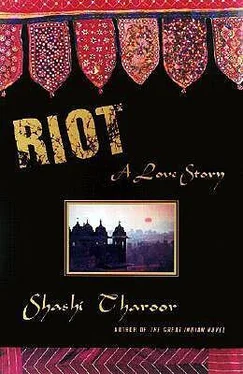Pakistanis will never understand the depth of the disservice Jinnah did us, Indian Muslims as a whole, when he made some of us into non-Indians. There are still so many Indians who — out of ignorance as well as prejudice — think of us as somehow different from them, somehow foreign, “not like us.” I was on a train once, with my wife and children, dressed as you see me, in a shirt and trousers, smoking a Wills and reading the Statesman, when my neighbor struck up a conversation about something in the paper — I can’t remember what it was, but it had nothing to do with the communal question. Anyway, towards the end of the conversation, which we had both enjoyed, he introduced himself and asked me my name. “Mohammed Sarwar?” he repeated incredulously. “A Muslim?” As if Mohammed Sarwar could be anything but a Muslim! “Yes,” I replied, tightly, defensively. He waved a sheepish hand, the gesture taking in my garb, my wife in a floral-patterned salwar-kameez, my little boys in shorts and tee-shirts reading Amar Chitra Katha comics. “But you’re not like them at all!”
Not like them at all. I began to say something, but was suddenly overcome by the sheer futility of the attempt. It was bad enough that he had labeled me, consigned his erstwhile conversational partner to the social ghetto of minority status. But I had surprised him, perhaps even disappointed him, by failing to conform to his stereotype of my minority- hood. As a Muslim, I had to look different; perhaps my forehead should bear the indentation of banging it on the floor five times a day in namaz; my wife should no doubt be in a burqa, shielded from infidel eyes; my boys should wear the marks of their circumcisions like a badge. Instead there we were, indistinguishable from any other middle-class Indian family on the train. I looked him directly in the eye till he became uncomfortable enough to avert his gaze. I am a Muslim, I wanted to say to him, but I will never allow your kind to define what kind of Muslim I am.
Yes, there’s prejudice in this country. I know I’ve had a privileged upbringing, an elite education, and I’m now in a position of intellectual authority. I’ve been conscious of how important it is for me never to forget that isn’t that way for millions of my fellow Muslims. Indian Muslims suffer disadvantages, even discrimination, in a hundred different ways that I may never personally experience. If I’m ever in danger of forgetting that, there’ll be someone like that man on the train to remind me.
And yet, Mr. Diggs, I love this country. I love it not just because I was born here, as my father and mother were, as their parents before them were, not just because their graves have mingled their bones into the soil of this land. I love it because I know it, I have studied its history, I have traveled its geography, I have breathed its polluted air, I have written words to its music. India shaped me, my mind, my tastes, my friendships, my passions. The fact that I bow my head towards the Kaaba five times a day — after years in college when I did not pray even three times a year — does not mean I am turning away from my roots. I can eat a masala dosa at the Coffee House, chew a paan afterwards and listen to Ravi Shankar playing raag durbari, and I celebrate the Indian-ness in myself with each note. I hear the Muslim Dagar brothers sing Hindu devotional songs, and then I attend a qawwali performance by one of our country’s greatest exponents of this Urdu musical form, who happens to be a Hindu, Shankar Shambhu, and I am transported as he chants the long list of Muslim pirs to whom he pays devotional tribute before his rendition. This is India, Mr. Diggs!
I was a student in 1971 when the Pakistani generals proclaimed a jihad, a holy Islamic war, against India. This was in the war that would create Bangladesh, another Muslim state in what had been East Pakistan. A jihad, they said, but my chest swelled with pride that the Indian Air Force commander in the northern sector was my classmate’s father, Air Marshal Latif, later Air Chief Marshal. What sort of jihad would the Pakistanis conduct against this distinguished Muslim?
I take my children to the latest Bollywood blockbuster and laugh as the Muslim hero chases the Hindu heroine around the tinsel tree. I avidly follow Test cricket and cheer for my hero, perhaps the best batsman in the world, Mohammed Azharuddin, and I cheer for him because he is on my team, the Indian team, not because he is Muslim — or at least, not only because he is Muslim. I cannot tell you how much it meant to me when he scored a century for India against Pakistan, in Pakistan. One day he will captain India, Mr. Diggs, and he will make every Indian proud because no one will notice, despite his name, that he is a Muslim.
Or so I hope. In recent years, Mr. Diggs, there’s been a change in the dominant ethos of the country, in the attitudes of mind that define what it means to be Indian. We’re seeing more and more the demonization of a collectivity. Look at the things they are saying! Muslims are “pampered” for political ends, they say: look at the Shah Banu case and Muslim Personal Law. Muslims have four wives, they exclaim, and are outbreeding everyone else; soon they will overtake the Hindus! Muslims are disloyal: they set off firecrackers whenever Pakistan beats India at cricket or hockey. I tried to argue the point at first with those Hindus who were willing to raise it with me, but found it almost too simple to do so. The Rajiv Gandhi government’s action on Shah Banu was pure political opportunism; it was a sellout to Muslim conservatives, but a betrayal of Muslim women and Muslim reformers. Why stigmatize the community as a whole when many amongst them too lost out in the process? In any case, Personal Law covers only marriage and inheritance and divorce: how does it affect those who are not subject to it? If Muslims have four wives — and not many do — how does that increase the number of reproductive Muslim wombs, which still remains four whether by one husband or many? And by what statistical projection can 115 million Muslims “overtake” 700 million Hindus? If a handful of Muslims are pro-Pakistani, how can one label an entire community? Surely the families of my hero Mohammed Azharuddin, or, for that matter, of the nation’s numerous Muslim hockey stars, aren’t setting off firecrackers to commemorate Indian defeats by Pakistan? But it doesn’t matter — this is not about logic or reasoning. The national mind has been afflicted with the intellectual cancer of thinking of “us” and “them.”
Where do Indian Muslims like myself fit in? I’ve spent my life thinking of myself as part of “us”— now there are Indians, respectable Indians, Indians winning votes, who say that I’m really “them”!
But I’m determined to resist this minority complex that the Hindu chauvinists want to impose upon me and others like me. What makes me a minority? Is it a mathematical concept? Well, mathematically Muslims were always a minority in India, before Partition, even in the mediaeval Muslim period I spend my life researching and teaching. But when the Great Mughals ruled on the throne of Delhi, were Muslims a “minority” then? Mathematically no doubt, but no Indian Muslim thought of himself as a minority. Brahmins are only ten percent of the population of India today — do they see themselves as a minority? No, minorityhood is a state of mind, Mr. Diggs. It is a sense of powerlessness, of being out of the mainstream, of being here on sufferance. I refuse to let others define me that way. I tell my fellow Muslims: No one can make you a minority without your consent.
I beg your pardon? Yes, I’ve been to Pakistan. Once. For an academic conference, in fact. Where a Pakistani scholar stood up and spoke about the importance, indeed the centrality, of Islam in his country’s national identity. “If the Turks cease to be Muslim, they are still Turks,” he said at one point, bringing his peroration to a climax. “If the Egyptians cease to be Muslim, they are still Egyptians. If the Iranians cease to be Muslim, they are still Persians. But if we cease to be Muslim, what are we? We’re Indians!” I went up to him afterwards. “My name is Mohammed Sarwar,” I said, “and I’m Indian.” And I simply walked away from his outstretched hand.
Читать дальше












